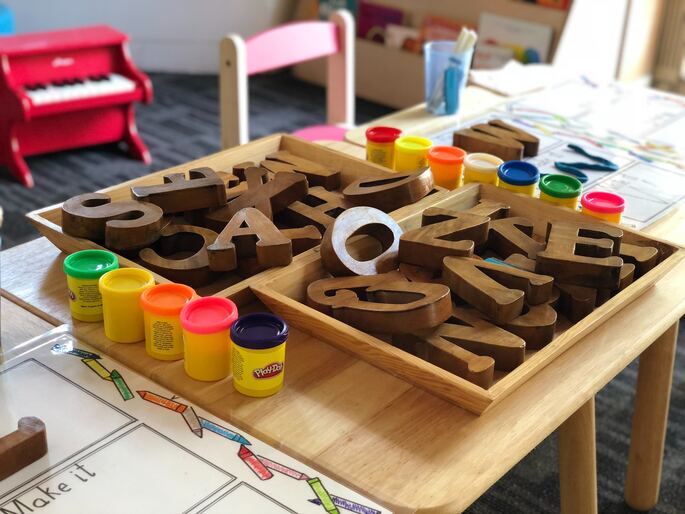A home renovation adds style and comfort to your home, getting you one step closer to the house of your dreams. But, if you’ve lived through a renovation before, you know the process can be filled with stress and anxiety. Luckily, there are many things you can do to help manage and plan for the stressors that come with a home renovation. This article will discuss the steps to keep calm and carry on with realistic goals, progress tracking, and de-stressor tips.
Why do renovations burn us out?
The sights, sounds, and feelings that come from extensive remodeling are disruptive to daily life. Banging hammers, buzzing saws, and layers of dust and debris can make your patience run thin, especially when paired with poor communication with your contractor. On top of that, watching your savings dwindle or facing unexpected and unavoidable expenses and setbacks can put you on edge. Here are some of the most common sources of stress:
- Mental and physical toll: Burnout can lead to feelings of anxiety, depression, and frustration, which can affect your mental health in the long run. Renovating a home also requires a lot of physical labor, such as lifting heavy objects, painting, and cleaning. Physical exhaustion increases the risk of illness or injury.
- Decreased quality of work: When you’re overworked, you’re more likely to make mistakes or overlook important details. This can compromise the quality of your work and lead to costly mistakes.
- Increasing costs: When you’re experiencing burnout during a home renovation, it can cause you to overspend on materials or labor. Mistakes caused by distracting feelings of frustration or stress can also end up costing more in the long run when they need to be fixed.
- Expanding timeline: Burnout can slow down the renovation process. This can delay the completion and increase the time you have to spend living in a construction zone.
Excess clutter and disorganization: This can further contribute to the burnout experienced during renovations. The accumulation of construction materials, tools, and displaced furniture can make it difficult to navigate and find a sense of order within your living space. This disarray adds an additional layer of stress and can make it challenging to relax or find solace amidst the chaos.
Common mistakes that cause burnout

Fortunately, there are several things you can do to set yourself up for success and limit the amount of stress you experience during your renovation project. With a little pre-planning and progress tracking, you can keep on track and avoid frustration. Below are some common mistakes homeowners make:
- Not planning ahead: One of the most common mistakes homeowners can make is failing to plan the renovation project properly. A poorly planned home renovation leads to delays, cost overruns, and mistakes. You can also run into issues preventing you from being able to complete the project as you intended. Support beams could suddenly stop you from creating that open floor plan, or structural damage may need to be addressed before you finish laying your new floor. To avoid this mistake, create a detailed plan, including a timeline, budget, and list of materials and contractors needed. Set realistic goals; remember, it’s always better to be ahead than behind.
- Underestimating your budget: Another common mistake is underestimating the budget for the renovation project. Basic costs for a renovation can drastically increase when it comes time to do the work. If you run into an issue requiring a professional or need twice as much material as you planned for, unexpected costs can build quickly. To avoid this mistake, create a detailed budget that includes all the costs associated with the renovation, including materials, labor, and potential unexpected expenses. Keeping your budget set at the highest possible cost will help you avoid feeling anxiety about overspending.
- Ignoring building codes, regulations, and permits: Failing to comply with building codes and regulations can lead to costly fines and delays. Each city has varying codes and regulations which you must follow to protect public safety and ensure your home remains structurally sound. To avoid this mistake, research the local building codes and regulations before starting the renovation project and ensure it complies with all requirements. Discuss your project with a professional aware of the pertinent building codes and regulations to discover what you need to have in place before starting your project. Also, obtain all necessary permits before starting the project.
- Overlooking your insurance coverage: If you are like the roughly 93% of Americans with homeowners insurance, it’s critical to speak to your agent as you plan a home renovation. Failing to do so can cause a major logistical headache, as your insurer will likely need to confirm that the proper permits were pulled, the renovations were done by a licensed professional, and they may even need to adjust your insurance premiums. To avoid this mistake, speak to your home insurance agent early in the process to make sure you’re in compliance throughout your project.
- Hiring the wrong professionals: Choosing the wrong contractor can lead to poor quality work, delays, and cost overruns. A truly bad experience can even lead to legal fees and a long, drawn-out process to repair damage or half-finished projects. To avoid this mistake, research potential contractors thoroughly before hiring them. Check references, read reviews, and ask for a detailed contract outlining the scope of work, timeline, and payment schedule. Compare and contrast several options before making a final decision.
Tips for low-stress home renovation

If you’re facing an upcoming home renovation project, setting yourself up for a low-stress experience is important. The right know-how, tools, and processes can make or break the project. Use these tips and tricks to plan a renovation project with realistic goals, motivating progress tracking, and even a bit of fun!
Make a timeline
Start by creating a renovation plan which outlines your goals, budget, and timeline. Having a clear plan helps you keep organized and focused. It’s vital to set aside a contingency budget. Before starting the renovation, set aside some money as an emergency fund. This will help you deal with unexpected setbacks with much less hassle and anxiety.
It’s also a great idea to create a backup plan in case things don’t go as planned. Consider the room you’re working in and how losing its function will affect your household. For example, if you’re redoing the kitchen, decide how you’ll handle meals during the renovation process or if anything makes it so you can’t use your kitchen for an extended period.
Remember, renovations often take longer than anticipated. Plan for the unexpected delays you’ll likely experience. This means having a backup living arrangement in case the renovation prevents you from staying home or adjusting your work schedule to accommodate the delay.
Manage your expectations
Home renovation is exciting, and when you’re in the planning and dreaming phase, it’s easy to see how an ungraded space will positively affect your life. But, getting set on very specific details, grand additions, or even aesthetic changes early on can lead to discouragement and disappointment mid-project. Be realistic about the time, effort, and money required for your renovation project. Set tangible goals and have backup finishes and designs in place in case you have to pivot.
Don’t put too much pressure on yourself to achieve perfection. Remember your original goal for this project was to improve your life and your home. Keep your eye on the prize and set a simple project goal. For example, if you’re working in a bathroom, decide if a rain-style shower head, heated floors, or an updated facade is the most important aspect of the renovation. That way, you can easily let go of add-ons and extras if needed.
Hire the right professional
Hiring a contractor during a home renovation can be an excellent way to reduce stress and make the renovation process smoother. Skilled contractors have the knowledge, expertise, and experience to manage a renovation project from start to finish. Their understanding of home projects can help reduce the stress and uncertainty often associated with DIY home renovations.
You don’t have to hire a professional to handle every aspect of the project. If there are tasks you love to do or want to try out for the first time, focus on those and let the contractor handle everything else. Hiring a general contractor to restring your wiring or add a new lighting fixture to a space allows you to focus on painting a pattern on the walls or installing a new baseboard. You can keep the project moving while delegating more complex or skill-based tasks, such as junk removal, to a professional who has your back.
Also, when hiring professionals for your home renovation, consider bringing on a project manager to oversee the process. A project manager can coordinate different aspects of the renovation, ensure timely progress, and handle communication between contractors and homeowners, ultimately reducing stress and streamlining the project.
Communicate often
Once you’ve hired a contractor, keeping a direct and open line of communication is vital to a successful professional relationship. Set expectations for communication before hiring the contractor to start the home renovation on the same page.
Discuss potential issues with your contractor. Have a frank discussion with them before the renovation starts about any potential problems that might arise and ask how they plan to address them. Knowing your contractor has a plan if something goes awry provides a sense of comfort and helps reduce daily stress or worry about the project’s completion.
Regular communication with your contractor can help you stay informed and provide progress tracking to increase your peace of mind. It also allows you to quickly and efficiently address any issues that arise. This will help you feel more in control of the situation and better capable of dealing with unexpected problems.
Set achievable goals
You’re more likely to follow through with a complex renovation if you set realistic goals. It’s easy to let excitement lead our choices and plans, but staying calm and focused and breaking your work into manageable chunks will garner better results.
Break your renovation project into smaller tasks and set achievable goals you can celebrate. Share a bottle of wine, get yourself a treat, or splurge on home decor for the finished room when you hit your milestones. By sectioning the renovation project, you’ll find more reasons and occasions for celebration. These mini-celebrations help to reduce stress in the long wrong.
When creating these smaller goals, work from the basics to the finishing touches. Have your first goal be simple, like clearing the room or sweeping the surfaces. Be kind to yourself and allow ample time between each goal.
Seek support and delegate
Frustration, distress, and discouragement can pop up during a home renovation and stall your success. If this happens, don’t hesitate to reach out for support from friends, family, or professionals. If you’re feeling overwhelmed, the best thing you can do is ask for a second set of eyes to help assess the situation. Sometimes, when you’re intensely involved in a project, you can miss easy fixes or workarounds that someone new might discover.
Talking to others about your struggles can help alleviate stress and anxiety. It can also act as the much-needed break you need to refocus and find hidden solutions. It’s also helpful to delegate tasks to family members or professional contractors to help lighten the workload. This support can also help you focus on those tasks you enjoy and find fulfilling to help you refocus on the end goal.

Don’t forget about self-care
Self-care is crucial to maintain during any stressful period. No matter how your project progresses, prioritize rest, healthy eating, exercise, and other activities that promote relaxation and well-being. Create a designated relaxation space in your home free from renovation work. This could be a room where you read a book, meditate, or simply take a nap.
Reward yourself for getting through the day. Ensure you’re doing at least one activity for yourself to make the process less stressful. Take regular breaks during the renovation process to recharge and avoid exhaustion. If you’re feeling overwhelmed, take a walk or engage in an activity that you will enjoy. And, most importantly, set aside time to spend with family and friends.
Renovations in your home can take over your life and become all your think about. By committing to looking outside the project, staying connected to people, places, and activities that make you happy, and having regular relaxation and rest, you’ll avoid burnout and enjoy the process more.

Home renovation projects are a mix of excitement, fun, stress, and hard work. Taking the time to plan the workflow properly, budget accordingly, and research contractors will help you avoid costly mistakes that can add to the stress and budget of your renovation. By following these tips and tricks, you’ll face your next project with renovation resilience and have a more efficient, less stressful time turning your home into something truly special.




